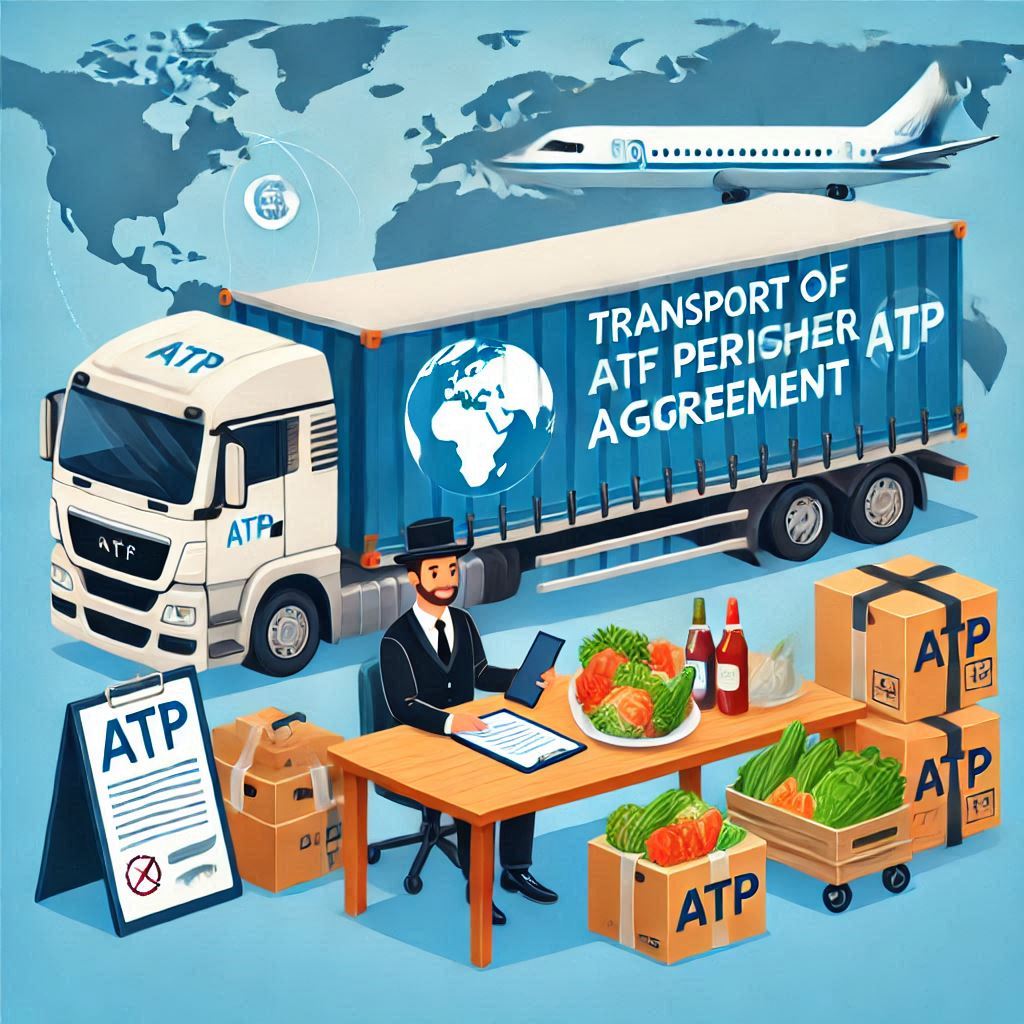ATP Convention - everything you need to know about international food transportation
The ATP Convention is a key document regulating the international transport of foodstuffs requiring controlled temperatures. The ATP (Accord Transport Perissables) agreement is the basis for the safe transportation of food in Europe and beyond. In this article, you will learn all about the ATP Convention and its importance to the transportation industry.
History and significance of the ATP agreement (on the transportation of perishable goods)
The ATP Convention was drawn up in Geneva on September 1, 1970 under the auspices of the United Nations. This international agreement on the transportation of perishable foodstuffs was created in response to the growing need for standardization of food transportation.
Key aspects of the ATP Convention
Transportation under the ATP agreement must meet a number of requirements for special means of transportation. Any means of transportation used to transport foodstuffs should have adequate thermal insulation and a refrigeration system.
Types of means of transport covered by the Convention
The ATP agreement regulates the following types of transportation:
- Thermally insulated means of transport
- Resources transport with a mechanical refrigeration unit
- Heated means of transport
More about types of refrigerated transport
ATP certification and technical requirements
The ATP certificate is a key document confirming the compliance of the means of transport with the requirements of the convention. The transport of goods must take place under strictly defined transport conditions, taking into account:
- Control of the heat transfer coefficient
- Maintaining the right temperature inside
- Monitoring of conditions during transit
Learn more about ATP certification
Legal status and updates 2022
Significant changes have been made to regulations on the transportation of perishable foodstuffs in 2022. The new regulations focus on increasing the efficiency of transportation and the safety of cargo.
Q: What is the ATP agreement?
A: ATP agreement, or agreement on international transports perishable articles, regulates the transportation of foodstuffs and about special means of transportation for these transports.
Q: What articles does the ATP agreement cover?
A: The ATP agreement deals with perishable foodstuffs and products that require special means of transportation to transport them.
Q: When was the ATP agreement adopted?
A: The ATP agreement was adopted in Geneva on September 1, 1970.
Q: What are the requirements for means of transportation under the ATP agreement?
A: The means of transportation must be equipped with appropriate facilities that meet the requirements of the Agreement on the International Carriage of Perishable Articles.
Q: What are the consequences of not complying with the ATP agreement?
A: Failure to comply with the ATP agreement can lead to loss of goods, as well as legal liability in the event of damage or spoilage of perishable food items in transit.
Q: Does the ATP agreement apply to domestic transportation?
A: The ATP agreement applies to the international carriage of perishable items, although some rules may also apply to domestic carriage.
Q: What documents are required for shipments of perishable items?
A: When transporting perishable items, it is necessary to have the appropriate transport documents that confirm compliance with the ATP agreement and the requirements for transport equipment.
Q: What are the rules for transshipment by means of transportation under the ATP agreement?
A: The rules for transshipment by means of transportation for perishable goods specify that delays that may lead to deterioration of goods should be avoided.
Q: What are the distance restrictions on shipments under the ATP agreement?
A: The ATP Agreement does not apply to shipments of less than 150 kilometers, which means that no special means of transportation are required for such shipments.
Practical application of the ATP Convention
The ATP agreement is particularly important for:
- Carriage of goods deep-frozen
- Transportation of perishable products
- International transportation of perishable goods
Check the requirements for different product categories
Summary
The ATP Convention remains the foundation for international food transportation. Any carrier involved in the transportation of foodstuffs should be thoroughly familiar with its requirements and adhere to the standards set forth therein.
Source: Official Gazette, ATP documents appendix







